
Cowpunk is a subgenre of punk rock that began in the United Kingdom and Southern California in the late 1970s and early 1980s. It combines punk rock or new wave with country, folk, and blues in its sound, lyrical subject matter, attitude, and style. Examples include Social Distortion, The Gun Club, The Long Ryders, Dash Rip Rock, Violent Femmes, The Blasters, Mojo Nixon, Meat Puppets, The Beat Farmers, Rubber Rodeo, Rank and File, and Jason and the Scorchers. Many of the musicians in this scene subsequently became associated with alternative country, roots rock or Americana.

Last Splash is the second album by American alternative rock band the Breeders, released on August 30, 1993. Originally formed as a side project for Pixies bassist Kim Deal, the Breeders quickly became her primary recording outlet. Last Splash peaked at number 33 on the Billboard 200 albums chart, and by June 1994, the album had been certified platinum by the Recording Industry Association of America (RIAA) for shipments in excess of one million units.
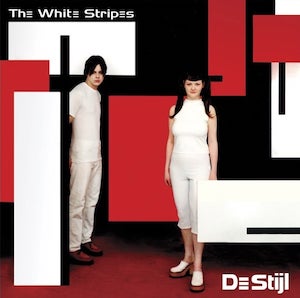
De Stijl is the second studio album by the American rock duo the White Stripes, released on June 20, 2000, on Sympathy for the Record Industry. The album was recorded after the covert divorce of band members Jack and Meg White, who nevertheless continued working together. It was produced by Jack White, and was recorded on an 8-track analog tape in his living room.

Guy Charles Clark was an American folk and country singer-songwriter and luthier. He released more than 20 albums, and his songs have been recorded by other artists, including Jerry Jeff Walker, Jimmy Buffett, Kathy Mattea, Lyle Lovett, Ricky Skaggs, Steve Wariner, Emmylou Harris, Rodney Crowell, Steve Earle, Johnny Cash, Willie Nelson, Nanci Griffith and Chris Stapleton. He won the 2014 Grammy Award for Best Folk Album: My Favorite Picture of You.

David James Abbruzzese is an American musician who was the drummer for the American rock band Pearl Jam from 1991 to 1994. He replaced drummer Dave Krusen in 1991, shortly before the release of the band's debut album, Ten. Abbruzzese played on the band's following records, Vs. and Vitalogy.
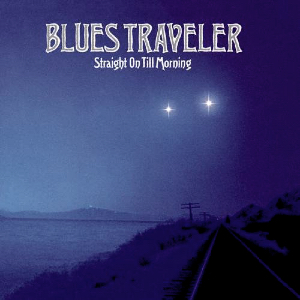
Straight On till Morning is the fifth album by American jam band Blues Traveler. It was released in July 1997. The title of the album, and the accompanying cover art, are from the directions to Neverland, as given by Peter Pan in J.M. Barrie's Peter Pan (1904/1911): "Second star to the right and straight on 'til morning." It is the last of the band's albums to feature bassist Bobby Sheehan, who died of a drug overdose in 1999.
Pedro Alejandro Escovedo is an American rock musician, songwriter, and singer, who has been recording and touring since the late 1970s. His primary instrument is the guitar. He has played in various rock genres, including punk rock, roots rock and alternative country, and is most closely associated with the music scene in Austin, Texas but also San Francisco and New York. He comes from a family of musicians.

The Golden Band is a studio album by the indie rock band the American Analog Set, released in 1999 on Emperor Jones Records.
Andrew Kenny is the main singer/songwriter of The Wooden Birds, which released their debut LP Magnolia in May 2009. Their second album, Two Matchsticks, was released June 2011. He was the frontman for the American indie/lo-fi band The American Analog Set. In 2003, he released a split EP in the Home Series with Benjamin Gibbard. In 2005, he contributed towards Broken Social Scene's 2005 self-titled album. Andrew Kenny toured briefly with Broken Social Scene in 2007 and with Ola Podrida in 2008 before moving back home to Austin to work on his own recordings.

I Can Hear the Heart Beating as One is the eighth studio album by the American indie rock band Yo La Tengo, released on April 22, 1997, by Matador Records. It was produced by Roger Moutenot and recorded at House of David in Nashville, Tennessee. The album expands the guitar-based pop of its predecessor Electr-O-Pura to encompass a variety of other music genres, including bossa nova, krautrock, and electronic music. Most of the songs on the album deal with melancholy emotions and range from short and fragile ballads to long and open-ended dissonance.
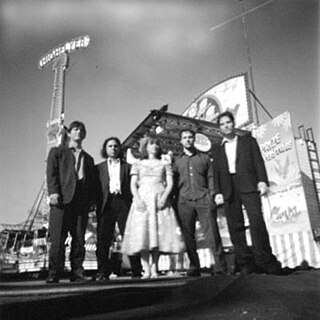
Dolly Varden is a Chicago band built around the singing and songwriting of husband and wife duo Steve Dawson and Diane Christiansen. Their music combines elements of folk, rock and pop and country. The band has released 5 albums, along with several collections and side projects.

The Record Company is a Grammy-nominated American rock band from Los Angeles. The members are Chris Vos, Alex Stiff, and Marc Cazorla. Their music is influenced by blues musicians like John Lee Hooker, early punk bands like The Stooges, and rock bands like The Rolling Stones.
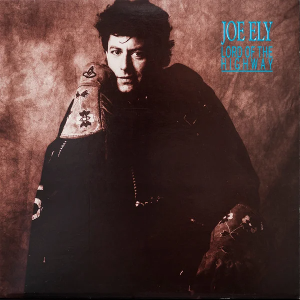
Lord of the Highway is an album by the American musician Joe Ely, released in 1987. It had been three and a half years since his previous album, during which time he recorded an unreleased album for MCA Records, assembled a new band, and toured. Ely supported the album with a North American tour.
Larry Franklin is an American Fiddler, mandolin and guitar player, session musician, and composer. His style embraces country, blues, rock and roll, jazz, and Western swing.

Ruby Red is an album by the American band the Dambuilders, released in 1995. It was the band's first major label album of completely new material.
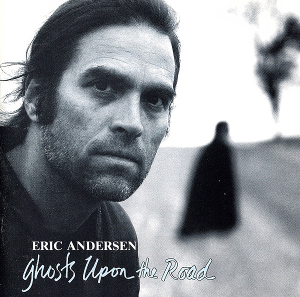
Ghosts Upon the Road is an album by the American musician Eric Andersen, released in 1989. His first release on an American label in 12 years, it was regarded as a comeback album. Andersen had been living in Norway for many years.

Thunder and Fire is an album by the American band Jason & the Scorchers, released in 1989. The band promoted the album by playing shows with, among others, Webb Wilder and Bob Dylan. "When the Angels Cry" and "Find You" were released as singles.
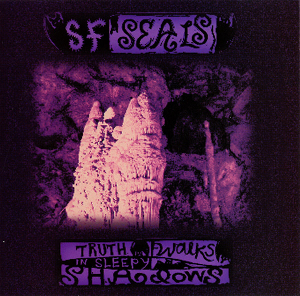
Truth Walks in Sleepy Shadows is the second and final album by the American band SF Seals, released in 1995. It was a loose song cycle about the ocean. The band supported the album by playing shows with Chris Knox.

Zone of Our Own is an album by the American supergroup Texas Tornados, released in 1991. The first two singles were "Is Anybody Goin' to San Antone" and "La Mucura". Videos for the singles were shot in San Antonio.

Clear Impetuous Morning is an album by the American band Jason & the Scorchers, released in 1996. The band supported the album with a North American tour that included shows with Slobberbone. The band's second studio album after their reunion, it was also their last with bass player Jeff Johnson.

















